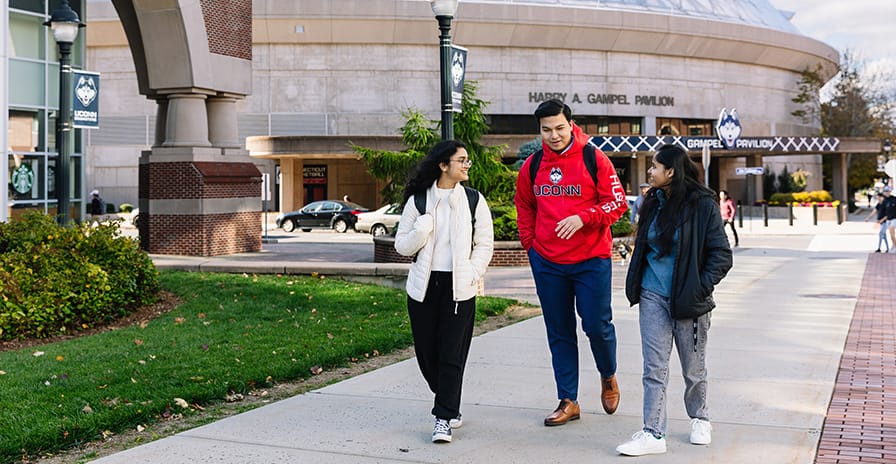My name is Arsha and I’m from Mumbai, India. I am an undergraduate student majoring in Psychological Sciences at the University of Connecticut (UConn). I’ve been through the university application process and now I want to help you through it too!
Writing a personal statement can be daunting, especially for international students, so I hope to be a helpful resource for you. So, let me tell you all about how to write a personal statement that will help get you noticed.
What is a personal statement?
First things first: what is a personal statement? A personal statement is an essay in which you tell the university admissions committee about yourself and persuade them that you will be a valuable addition to their university. It forms part of your university application and is often used in what’s known as “holistic admission” processes.
Top 5 tips for writing a personal statement
1. Note your ideas down straight away
For my personal statement, I began by writing down all the relevant ideas that I could think of. I also made voice notes on my phone with any sentence or topic that I thought could be included.
Voice notes help me because they allow me to get my thoughts out as soon as I think of them. This is important to me because I believe that the longer you leave it, the harder it is to recollect those ideas, which means they can lose their power and impact.
2. Make it personal!
When it comes to a personal statement, there are very few rules. It’s “personal,” so it should be about something unique to you, and you should feel free to write it in your own unique voice. It may be an experience you’ve had or a specialized background — whatever it is, it should be important to you and something that you can weave in throughout your statement.


3. Consider which prompt is right for you
I recommend choosing a topic more oriented to your personal journey, which may include writing about a significant event or time in your life. For example, you could write about a personal story about when you overcame a difficult challenge.
Be sure to spend time looking over each personal statement prompt provided by the University. Before writing your personal statement, it’s a good idea to brainstorm by noting down your ideas for each separate prompt.
By writing your ideas down first, you’ll have a better sense of which prompt is the most appropriate for you to build your essay around. Choosing the most appropriate topic for you will help the University better understand who you are as a person.
4. Write your introduction last
Introductions… many students struggle with writing introductions. I believe it is because of the impact it can have on the reader, as well as because it is one of the components that ties the essay together.
I usually go through the entire essay before moving on to the introduction. That way, I know what I have written about and am prepared with the content that the introduction should cover.

5. Summarize your statement in a conclusion
The other big challenge people face is the conclusion. My formula for a good conclusion is to include broad statements about the essay, which provide the gist of what I’ve written about and makes sense even if someone hasn’t read the whole essay.
Why not apply today?
I hope my tips for writing a personal statement help you with your university application. As an international student, it can be intimidating, but the Kaplan team are there to help you at every step! Why not get in touch with them and explore your options for studying abroad?




